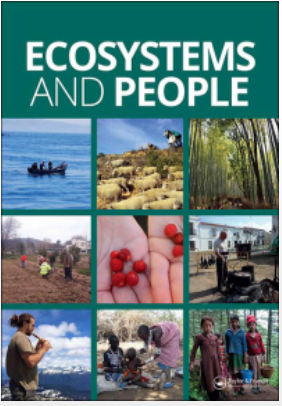Engaging at the science-policy interface as an early-career researcher: experiences and perceptions in biodiversity and ecosystem services research
IF 3.7
Q1 Agricultural and Biological Sciences
引用次数: 4
Abstract
ABSTRACT Effective knowledge exchange at science-policy interfaces (SPIs) can foster evidence-informed policy-making through the integration of a wide range of knowledge inputs. This is especially crucial for conservation and sustainable use of biodiversity and ecosystem services (ES), human well-being and sustainable development. Early-career researchers (ECRs) can contribute significantly to knowledge exchange at SPIs. Recognizing that, several capacity building programs focused on sustainability have been introduced recently. However, little is known about the experiences and perceptions of ECRs in relation to SPIs. Our study focused on SPI engagement of ECRs who conduct research on biodiversity and ES, as perceived and experienced. Specifically, we addressed ‘motivations’, ‘barriers’ and ‘opportunities and ‘benefits’. A total of 145 ECRs have completed the survey. Our results showed that ECRs were generally interested to engage in SPIs and believed it to be beneficial in terms of contributing to societal change, understanding policy processes and career development. Respondents perceived lack of understanding about involvement channels, engagement opportunities, funding, training, perceived credibility of ECRs by other actors and encouragement of senior colleagues as barriers to engaging in SPIs. Those who have already participated in SPIs generally saw fewer barriers and more opportunities. A key reason for dissatisfaction with experience in SPIs was a lack of impact and uptake of science-policy outputs by policymakers – an issue that likely extends beyond ECRs and implies the need for transformations in knowledge exchange within SPIs. In conclusion, based on insights from our survey, we outline several opportunities for increased and better facilitation of ECR engagement in SPIs.作为一名早期职业研究人员参与科学-政策界面:生物多样性和生态系统服务研究的经验和看法
摘要科学政策接口(SPIs)的有效知识交流可以通过整合广泛的知识输入来促进基于证据的决策。这对生物多样性和生态系统服务的保护和可持续利用、人类福祉和可持续发展尤为重要。早期职业研究人员(ECRs)可以为SPIs的知识交流做出重大贡献。认识到这一点,最近推出了几个以可持续性为重点的能力建设方案。然而,人们对ECRs与SPIs相关的经验和看法知之甚少。我们的研究重点是ECRs的SPI参与,他们对生物多样性和ES进行了研究。具体而言,我们讨论了“动机”、“障碍”以及“机会和利益”。共有145个ECR完成了调查。我们的研究结果表明,ECR普遍对参与SPIs感兴趣,并认为这对促进社会变革、理解政策过程和职业发展有益。受访者认为,对参与渠道、参与机会、资金、培训、其他参与者对ECRs的可信度以及高级同事的鼓励缺乏了解是参与SPIs的障碍。那些已经参加SPIs的人通常看到更少的障碍和更多的机会。对SPIs经验不满的一个关键原因是政策制定者缺乏对科学政策产出的影响和吸收——这一问题可能超出了ECRs,并意味着SPIs内部知识交流需要转变。总之,基于我们调查的见解,我们概述了增加和更好地促进ECR参与SPIs的几个机会。
本文章由计算机程序翻译,如有差异,请以英文原文为准。
求助全文
约1分钟内获得全文
求助全文
来源期刊

Ecosystems and People
Agricultural and Biological Sciences-Ecology, Evolution, Behavior and Systematics
CiteScore
7.80
自引率
11.30%
发文量
40
审稿时长
42 weeks
期刊介绍:
Ecosystems and People is an interdisciplinary journal that addresses how biodiversity and ecosystems underpin human quality of life, and how societal activities and preferences drive changes in ecosystems. Research published in Ecosystems and People addresses human-nature relationships and social-ecological systems in a broad sense. This embraces research on biodiversity, ecosystem services, their contributions to quality of life, implications for equity and justice, and the diverse and rich ways in which people relate to nature.
 求助内容:
求助内容: 应助结果提醒方式:
应助结果提醒方式:


